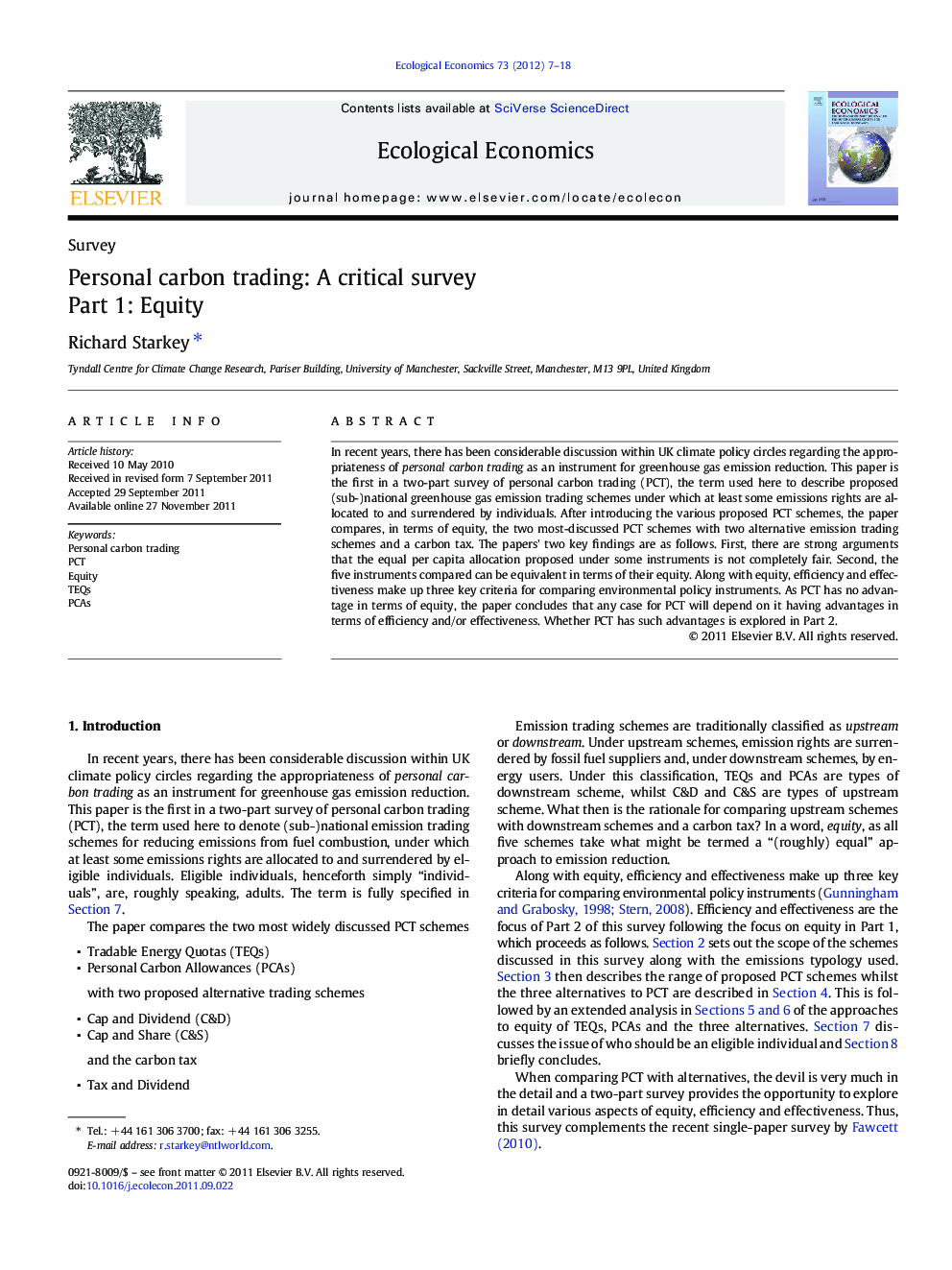| Article ID | Journal | Published Year | Pages | File Type |
|---|---|---|---|---|
| 5050404 | Ecological Economics | 2012 | 12 Pages |
In recent years, there has been considerable discussion within UK climate policy circles regarding the appropriateness of personal carbon trading as an instrument for greenhouse gas emission reduction. This paper is the first in a two-part survey of personal carbon trading (PCT), the term used here to describe proposed (sub-)national greenhouse gas emission trading schemes under which at least some emissions rights are allocated to and surrendered by individuals. After introducing the various proposed PCT schemes, the paper compares, in terms of equity, the two most-discussed PCT schemes with two alternative emission trading schemes and a carbon tax. The papers' two key findings are as follows. First, there are strong arguments that the equal per capita allocation proposed under some instruments is not completely fair. Second, the five instruments compared can be equivalent in terms of their equity. Along with equity, efficiency and effectiveness make up three key criteria for comparing environmental policy instruments. As PCT has no advantage in terms of equity, the paper concludes that any case for PCT will depend on it having advantages in terms of efficiency and/or effectiveness. Whether PCT has such advantages is explored in Part 2.
⺠This paper describes various personal carbon trading (PCT) schemes. ⺠Proposed alternatives, C&D and C&S, are also described. ⺠The implementation of the PCT scheme TEQs may leave those on low income worse off. ⺠PCT schemes and proposed alternatives can all be equivalent in terms of equity. ⺠“Picking a winner” must therefore be done on grounds other than equity.
